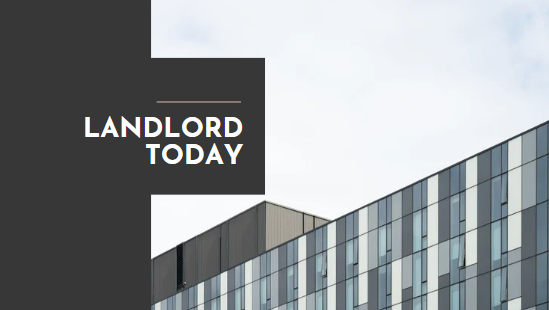The role of a landlord today has evolved significantly in recent years, influenced by shifts in economic conditions, regulatory changes, and technological advancements. Being a landlord today is vastly different from what it was even a decade ago. The modern landlord must navigate a complex landscape filled with new challenges and opportunities while also adopting best practices to ensure success and compliance.
The Changing Landscape of Property Ownership
Property landlord today ownership has long been seen as a stable and profitable investment. However, the dynamics of the rental market have shifted due to several factors. The COVID-19 pandemic, for example, brought about unprecedented challenges for landlords, including eviction moratoriums, landlord today rent freezes, and a surge in tenant defaults. These challenges highlighted the need for landlords to be adaptable and proactive in managing their properties and relationships with tenants.
Moreover, the rise of remote work has changed where people choose to live. Urban areas that once boasted high landlord today rental demand are seeing a shift as more people move to suburban or rural areas. This migration affects rental prices and vacancy rates, requiring landlords to be more strategic in their property investments.
Also Read : UK housing market
Regulatory Changes and Compliance landlord today
Landlord today must stay informed about a growing list of regulations that vary by region. Governments at all levels are increasingly imposing rules to protect tenants’ rights, which can include limits on rent increases, stricter eviction processes, and mandatory health and safety inspections.
For instance, many cities have implemented rent control measures that cap how much landlords can increase rent each year. While these measures are intended to make housing more affordable, they also reduce profit margins for landlords and can disincentivize property improvements. landlord today must therefore balance compliance with these regulations while maintaining the financial viability of their investments.
Additionally, there is an increasing focus on environmental sustainability, with many jurisdictions requiring landlords to make energy-efficient upgrades to landlord today their properties. These upgrades, while costly upfront, can lead to long-term savings and appeal to environmentally conscious tenants.
The Role of Technology in Modern Landlordship
Technology has become an indispensable tool for landlord today. From property management software to virtual tours and online payment systems, technology streamlines many aspects of property management, making it easier for landlords to operate efficiently. Property management software allows landlord today to automate tasks such as rent collection, maintenance requests, and tenant screening. These systems reduce the administrative burden and minimize errors, allowing landlords to focus on growing their portfolios. Virtual tours have become particularly popular in the post-pandemic world, enabling prospective tenants to view properties remotely. This technology not only saves time for both landlord today and tenants but also expands the pool of potential renters beyond the immediate geographic area. Online payment systems are another crucial tool, offering tenants a convenient way to pay rent while providing landlord today with real-time tracking of payments. These systems can also integrate with accounting software, simplifying financial management and tax preparation.
Challenges Faced by Landlord Today
Despite the opportunities presented by modern technology, landlord today still face numerous challenges. One of the most significant is maintaining positive tenant relationships. However, achieving tenant satisfaction can be challenging, especially in a market where renters have more options than ever before. landlord today must be responsive to maintenance requests, transparent in their communications, and fair in their dealings with tenants. Failure to do so can result in negative reviews and difficulty attracting new tenants.
Another challenge is the rising cost of property maintenance and improvements. Inflation has driven up the cost of materials and labor, making it more expensive for landlord today to keep their properties in good condition. This is particularly problematic in rent-controlled areas, where landlords cannot easily pass these costs onto tenants through rent increases.
Furthermore, the increasing complexity of tax laws related to rental income and property ownership adds another layer of difficulty. landlord today must be diligent in their record-keeping and may need to seek professional advice to ensure they are maximizing their deductions and complying with all tax obligations.
Best Practices for Success as a Landlord Today
To thrive in today’s market, landlord today must adopt best practices that address the challenges and leverage the opportunities available. Here are some key strategies:
Stay Informed and Compliant: Regularly update your knowledge of local, state, and federal regulations landlord today that affect rental properties. Non-compliance can lead to fines, legal disputes, and damage to your reputation.
Leverage Technology: Invest in property management software and other technological tools that can landlord today automate tasks and improve efficiency. This not only saves time but also enhances the tenant experience.
Focus on Tenant Relationships: Prioritize communication and transparency with your tenants. Address their concerns promptly and fairly, and consider offering incentives for lease renewals to reduce turnover.
Plan for Maintenance Costs: Create a budget for ongoing maintenance and unexpected repairs. Regularly inspect your landlord today properties to identify issues before they become costly problems.
Optimize Your Portfolio: Diversify your property investments to mitigate risk. Consider the location, property type, and market trends when acquiring new properties.
Seek Professional Advice: Work with accountants, lawyers, and property managers to navigate the complexities of property ownership. Professional advice can help you maximize your returns while minimizing legal and financial risks.
Conclusion
Being a landlord today requires a combination of adaptability, knowledge, and strategic thinking. The landscape of property ownership is continually evolving, with new challenges emerging alongside opportunities. By staying informed, embracing technology, and focusing on tenant satisfaction, landlord today can navigate this complex environment and achieve long-term success. The key is to be proactive, flexible, and committed to continuous improvement in all aspects of property management.


